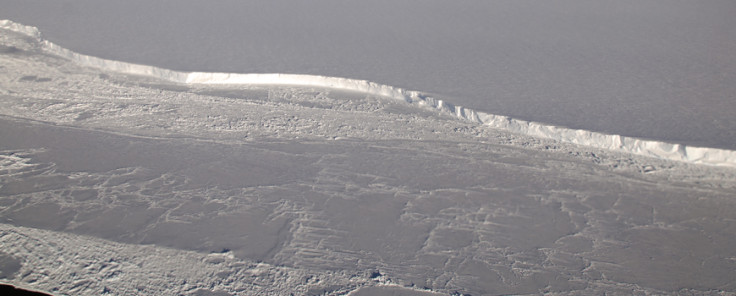Some of Antarctica's thinning floating ice shelves 'will be gone in 100 years'

Floating ice shelves in Antarctica will disappear in the next 100 years if they continue to thin at their current rate, a study has found.
A team of researchers from Scripps Institution of Oceanography at UC San Diego observed Antarctica's floating ice shelves from 1994 to 2012. Findings showed that some of the ice shelves had decreased by as much as 18% over the two decades, especially near the western edge of the continent.
The study, published in the journal Science, used data from satellite missions to examine how ice volume has declined by constructing a high-resolution record of ice shelf thickness. Data came from three overlapping missions by the European Space Agency.
Researchers found that total ice shelf volume across Antarctica changed very little over the first 10 years, but then witnessed a rapid decline. West Antarctic ice shelves showed losses over the whole period, with some shelves losing up to 18% of their volume over the course of the study period.
In the first decade, gains seen in East Antarctic appeared to balance out the losses seen in the West – but they stopped gaining mass in the second decade.
"18% over the course of 18 years is really a substantial change," said study author Fernando Paolo. "Overall, we show not only the total ice shelf volume is decreasing, but we see an acceleration in the last decade."
Speaking to IBTimes UK, he added: "The main thing responsible for the overall change is the eastern shelves stopped gaining mass in the second part of the observation period... I think it's correct to say that unless some of these environments change in the future, we should expect massive losses in the ice shelf."
Paolo said he was surprised at the extent of losses. "Some of these ice shelves have existed for thousands of years. We've found substantial changes over the course of 20 years. In some cases they've lost 18% of their volume already.
"If it continues as we see now, some of these ice shelves will be gone in 100 years. The same shelves that have existed for thousands of years, now they are changing very fast. I was surprised."
Ice shelves do not contribute directly to sea level rise, but they do buttress the flow from grounded ice into the ocean – and this flow does impact sea-level rise. The authors predict that if current rates continue, the ice shelves restraining the unstable section of the West Antarctica could lose half its volume within 200 years.
Paolo said their study will improve models of how ice shelves will respond to climate change in the future.
However, he also warned that to a certain extent, we are in the territory of damage control rather than prevention. "Even if we stop right now our contribution to climate change, 50 years from now we are going to still see climate changing because of things we have already done," he said.
© Copyright IBTimes 2024. All rights reserved.







